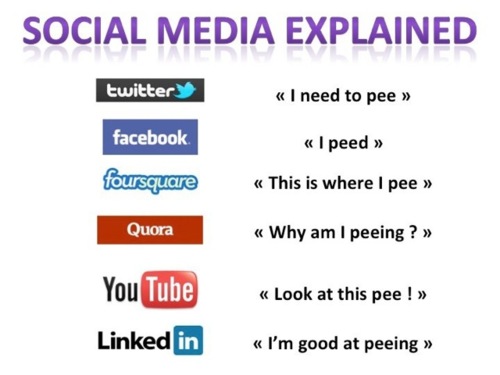I came across this blog post asking the question of whether Facebook Pages are killing the corporate web sites. Just by coincidence, I’ve been thinking about this for the last few days. And not only thinking, but discussing it with other people and collecting their ideas, feedback, and data.
With a question like this its easy to fall into an extremist black and white view of the world. But an answer in the middle isn’t quite as interesting as an answer from either side of the debate. In my personal opinion, the answer is more yes than no. Let me now explain.
Corporate web presence is increasingly important. It is so important in fact that today it’s almost a requirement. Web site is one of those first things a company needs to do, together with the office, logo, and business cards. Yes, I am aware of the fact that not every company needs an office, or a logo, or business cards, or even a web site, but these are minority and more of an exception rather than a rule, so I’ll ignore them for now.
But as much as web publishing technology developed and improved these years, it’s nowhere near the accessible level. Take for a example a brand new company. And let it, for the sake of the example, be a small business. A store, or a small services company. At the stage where we are now, the company basically has these routes to establish its web presence:
- Employ a web design/development company to create the website. There are a lot of variables here, but from what I’ve seen and heard around, such an option would cost somewhere around 700-3,000 EUR. It will also take somewhere between 1 week and 3 month to be completed. And then there will be maintenance/hosting/support charges ranging between 50-500 EUR a year. Roughly, of course.
- DIY. Either one of the company owners will create a website in MS Word and upload it to his ISP hosting folder. Or a there would be somebody technical, somebody from the IT department, who will be able to find some cheap hosting, buy domain, install an open source CMS together with some free themes and plugins. Even though cheaper and probably faster for the company, this will end up being a one-time job and soon nobody will remember who is supposed to update the web site and how to even get to the administration.
- Follow the white rabbit. As much as I wish for this option to be a free blog over at WordPress.com, the reality of the situation suggests that it’s more likely to be a Facebook Page. Free, fast and with no hassle.
Larger, richer companies have resources to invest into a proper web site, which would be maintained and updated, as well as constantly promoted. However many smaller companies simply can’t afford the option. And for them Facebook pages work surprisingly well.
In fact, I’ve spoken with a few local people who use Facebook pages to promote their business, services, and products. And most of them are very satisfied by this option. The outcomes vary, of course. Some people said that Facebook doesn’t help them at all. But they don’t mind since they spent only a few minutes setting up the page. Others are much happier. Two people in particular told me that they even had their own websites before, but those were a waste of time, since nobody ever visited them. But on Facebook they managed to capture their audience and now they have larger client base and its much easier for them to keep everyone in the loop on stock updates, as well as to collect feedback.
I think that this last bit is particularly important. It’s not about how much time or money you can invest. But whether you can break through and reach your potential audience. And somehow Facebook pages seem to be doing it better than standalone corporate website. At least for some types of businesses. And if it goes this way, I think more and more companies will start downgrading corporate websites from top priority to an item of lesser importance. After all, it’s never too late to start with your own website, but if you can survive for some time without it, and save money and time – why not?


 Via
Via